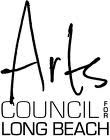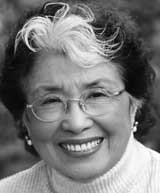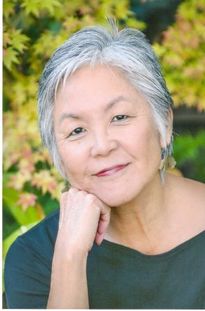HNA Opens Its Doors to the Public
Thursday, August 15, 2013 7 p.m.
“My Father’s Poetry”

Supported in part by Arts Council for Long Beach and the City of Long Beach, Haiku North America 2013 is honored to present a poetry reading and film screening, free and open to the public on the haiku and senryu of Japanese-Americans during WWII imprisonment. Attendees should tell the Queen Mary attendants that they are attending the haiku conference, to avoid being charged to board the boat. Discounted parking is available.
The event, “My Father’s Poetry,” will feature poet Mitsuye Yamada and filmmaker Satsuki Ina. The fathers of both women were prominent haiku and senryu poets involved in the thriving Japanese-American literary scene in the early 20th century, which was suppressed during and after World War II. Even when imprisoned during the war, the poets continued to write haiku and senryu, expressing not only outrage and despair, but also, the sublime moments and humorous absurdities that become even more apparent when uprooted from home, separated from family, and suffering through life behind bars.
The event, “My Father’s Poetry,” will feature poet Mitsuye Yamada and filmmaker Satsuki Ina. The fathers of both women were prominent haiku and senryu poets involved in the thriving Japanese-American literary scene in the early 20th century, which was suppressed during and after World War II. Even when imprisoned during the war, the poets continued to write haiku and senryu, expressing not only outrage and despair, but also, the sublime moments and humorous absurdities that become even more apparent when uprooted from home, separated from family, and suffering through life behind bars.

Mitsuye Yamada, author of Camp Notes and Other Writings (1976) and Desert Run: Poems and Stories (1988), will talk about the senryu groups her father founded before, during, and after the war, and how her father’s poetry impacted her life as a poet. She will read senryu written by her father in addition to some of her own longer-form poetry.
Yamada has spent her life fighting for women’s representation and increased multicultural understanding and respect. A retired English professor and founder of Multicultural Women Poets of Orange County, she was also featured in the 1981 film “Mitsuye and Nellie: Two Asian-American Poets.”
Yamada has spent her life fighting for women’s representation and increased multicultural understanding and respect. A retired English professor and founder of Multicultural Women Poets of Orange County, she was also featured in the 1981 film “Mitsuye and Nellie: Two Asian-American Poets.”

Satsuki Ina was born in Tule Lake Segregation Center where her family was imprisoned during World War II. She has produced two award-winning documentary films about the Japanese-American World War II experience: Children of the Camps and From a Silk Cocoon: a Japanese American Renunciation Story and is a Professor Emeritus at California State University Sacramento.
Satsuki Ina will share and read the haiku poetry of her father Itaru Ina who wrote some of his most evocative haiku during the war.
Following the reading, Ina will show her film, From a Silk Cocoon, which tells the true story of Dr. Ina’s parents Itaru and Shizuko Ina, who were imprisoned during World War II at Tanforan Relocation Center (in race track horse stalls) and, then, at Tule Lake Segregation Center in a desolate region of northern California. Woven into the story are haiku and senryu poems written by Itaru Ina, that evoke his feelings of betrayal by his country and his longing for his distant family.
Satsuki Ina will share and read the haiku poetry of her father Itaru Ina who wrote some of his most evocative haiku during the war.
Following the reading, Ina will show her film, From a Silk Cocoon, which tells the true story of Dr. Ina’s parents Itaru and Shizuko Ina, who were imprisoned during World War II at Tanforan Relocation Center (in race track horse stalls) and, then, at Tule Lake Segregation Center in a desolate region of northern California. Woven into the story are haiku and senryu poems written by Itaru Ina, that evoke his feelings of betrayal by his country and his longing for his distant family.
